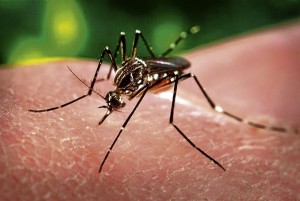TOKYO—Japanese health authorities have reported the first locally transmitted case of dengue fever in the country in more than 60 years.
The ministry said the case occurred in Saitama, a prefecture adjacent to Tokyo. Local media reports said the patient was a teen-aged girl who has since recovered.
Government spokesman Yoshihide Suga, in confirming the report, said Wednesday that the news was not cause for alarm because the illness is not transmitted directly from person to person.
Japan sees dozens of imported cases of dengue fever each year, mostly tourists who catch the illness while traveling in tropical regions. The disease, which is transmitted by mosquito, was common in Japan during World War II but was locally eradicated for decades.
Dengue causes symptoms including fever, severe joint pain and headaches. There is no treatment.
Dengue has been spreading in recent years, with 50 million to 100 million dengue infections a year in more than 100 countries. According to the World Health Organization, before 1970 only nine countries had experienced dengue epidemics. Japan reported 249 cases last year.
Related Stories:
Dengue cases in Central Visayas down
Weather bureau asks public to take ‘extreme caution’ under the sunDisclaimer: The comments uploaded on this site do not necessarily represent or reflect the views of management and owner of Cebudailynews. We reserve the right to exclude comments that we deem to be inconsistent with our editorial standards.





